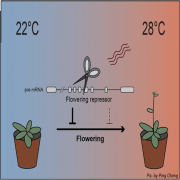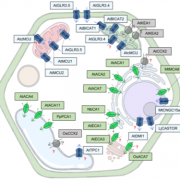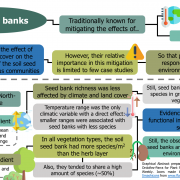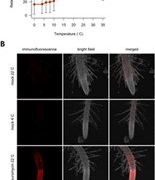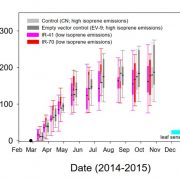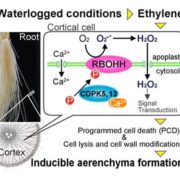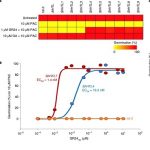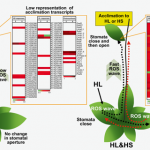UDP-glucosyltransferase regulates grain size and abiotic stress tolerance associated with metabolic flux redirection in rice (Nature Comms.)
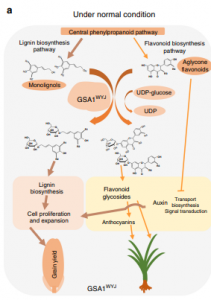 Climate change severely affects plant growth and jeopardizes yields of essential seed crops such as rice. Still, the mechanisms underlying the synergistic regulation of abiotic stress response and important agronomic traits remain poorly understood. Dong et al. cloned and characterized a major QTL in rice, named Grain Size and Abiotic stress tolerance 1 (GSA1) after its function. They obtained a set of Chromosome Segment Substitution Lines (CSSLs) by crossing an African variety (CG14, O. glaberrima) with an Asian variety (WYJ, O. sativa japonica), and identified GSA1 as novel genetic determinant of seed size. High resolution mapping revealed that the causal gene encodes a UDP-glucosyltransferase, which catalyzes glucosylation of flavonoids and monolignols. Strikingly, a single amino acid substitution in a conserved domain results in lower affinity for the substrate, and consequently decreased glucosyltransferase activity. The Nearly Isogenic Line (NIL) NIL-GSA1CG14 -carrying the weak allele of African rice- produced smaller grains compared to the NIL-GSA1WYJ control and showed higher sensitivity to abiotic stresses. By contrast, plants overexpressing GSA1WYJ not only produce bigger grains but also better tolerate salinity, drought and elevated temperatures. GSA controls cell proliferation and expansion by indirectly regulating components of the auxin signaling pathway via feedback regulation of flavonoid biosynthesis. On the other hand, GSA1 plays crucial roles in redirecting the metabolic flux between branches of the phenylpropanoid pathway, resulting in the accumulation of antioxidants which protect plants against oxidative damage. GSA1 will be a valuable gene for rice breeding programs aimed at improving crop productivity as well as tolerance to environmental limitations. (Summary by Michela Osnato @michela_osnato) Nature Comms. 10.1038/s41467-020-16403-5
Climate change severely affects plant growth and jeopardizes yields of essential seed crops such as rice. Still, the mechanisms underlying the synergistic regulation of abiotic stress response and important agronomic traits remain poorly understood. Dong et al. cloned and characterized a major QTL in rice, named Grain Size and Abiotic stress tolerance 1 (GSA1) after its function. They obtained a set of Chromosome Segment Substitution Lines (CSSLs) by crossing an African variety (CG14, O. glaberrima) with an Asian variety (WYJ, O. sativa japonica), and identified GSA1 as novel genetic determinant of seed size. High resolution mapping revealed that the causal gene encodes a UDP-glucosyltransferase, which catalyzes glucosylation of flavonoids and monolignols. Strikingly, a single amino acid substitution in a conserved domain results in lower affinity for the substrate, and consequently decreased glucosyltransferase activity. The Nearly Isogenic Line (NIL) NIL-GSA1CG14 -carrying the weak allele of African rice- produced smaller grains compared to the NIL-GSA1WYJ control and showed higher sensitivity to abiotic stresses. By contrast, plants overexpressing GSA1WYJ not only produce bigger grains but also better tolerate salinity, drought and elevated temperatures. GSA controls cell proliferation and expansion by indirectly regulating components of the auxin signaling pathway via feedback regulation of flavonoid biosynthesis. On the other hand, GSA1 plays crucial roles in redirecting the metabolic flux between branches of the phenylpropanoid pathway, resulting in the accumulation of antioxidants which protect plants against oxidative damage. GSA1 will be a valuable gene for rice breeding programs aimed at improving crop productivity as well as tolerance to environmental limitations. (Summary by Michela Osnato @michela_osnato) Nature Comms. 10.1038/s41467-020-16403-5


